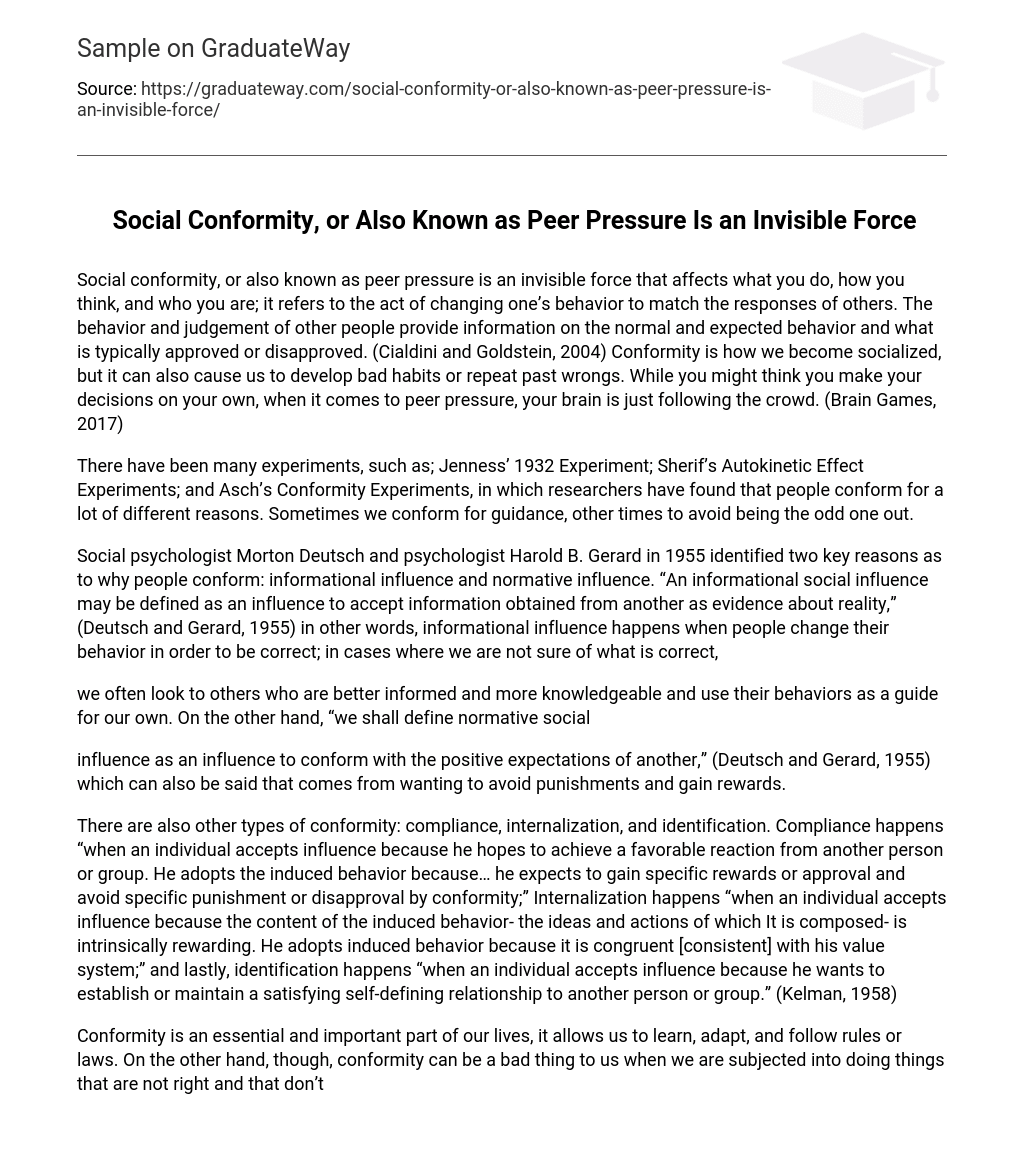Social conformity, or also known as peer pressure is an invisible force that affects what you do, how you think, and who you are; it refers to the act of changing one’s behavior to match the responses of others. The behavior and judgement of other people provide information on the normal and expected behavior and what is typically approved or disapproved. (Cialdini and Goldstein, 2004) Conformity is how we become socialized, but it can also cause us to develop bad habits or repeat past wrongs. While you might think you make your decisions on your own, when it comes to peer pressure, your brain is just following the crowd. (Brain Games, 2017)
There have been many experiments, such as; Jenness’ 1932 Experiment; Sherif’s Autokinetic Effect Experiments; and Asch’s Conformity Experiments, in which researchers have found that people conform for a lot of different reasons. Sometimes we conform for guidance, other times to avoid being the odd one out.
Social psychologist Morton Deutsch and psychologist Harold B. Gerard in 1955 identified two key reasons as to why people conform: informational influence and normative influence. “An informational social influence may be defined as an influence to accept information obtained from another as evidence about reality,” (Deutsch and Gerard, 1955) in other words, informational influence happens when people change their behavior in order to be correct; in cases where we are not sure of what is correct,
we often look to others who are better informed and more knowledgeable and use their behaviors as a guide for our own. On the other hand, “we shall define normative social
influence as an influence to conform with the positive expectations of another,” (Deutsch and Gerard, 1955) which can also be said that comes from wanting to avoid punishments and gain rewards.
There are also other types of conformity: compliance, internalization, and identification. Compliance happens “when an individual accepts influence because he hopes to achieve a favorable reaction from another person or group. He adopts the induced behavior because… he expects to gain specific rewards or approval and avoid specific punishment or disapproval by conformity;” Internalization happens “when an individual accepts influence because the content of the induced behavior- the ideas and actions of which It is composed- is intrinsically rewarding. He adopts induced behavior because it is congruent [consistent] with his value system;” and lastly, identification happens “when an individual accepts influence because he wants to establish or maintain a satisfying self-defining relationship to another person or group.” (Kelman, 1958)
Conformity is an essential and important part of our lives, it allows us to learn, adapt, and follow rules or laws. On the other hand, though, conformity can be a bad thing to us when we are subjected into doing things that are not right and that don’t go along with our values, belief, and opinions, just to try to be, or do, something that others want us to. We are all conformists, we just have to be the right kind of conformists.





